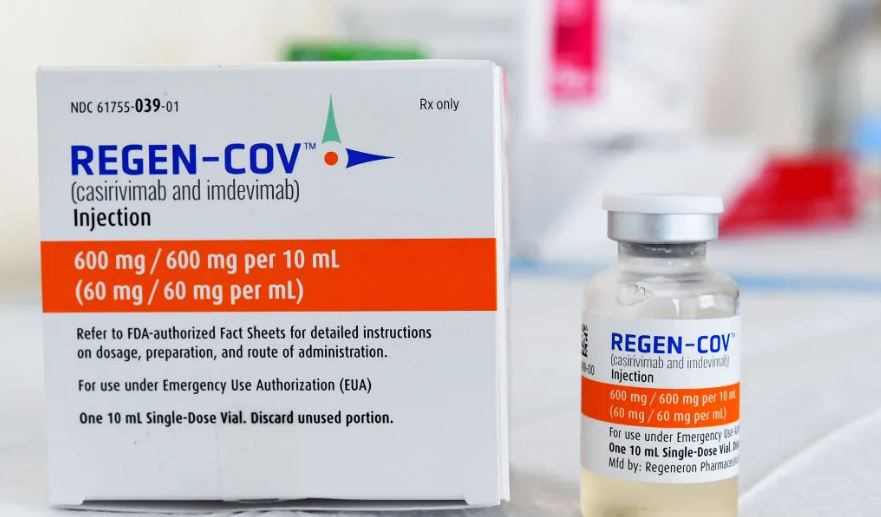Regeneron Pharmaceuticals Inc.’s antibody cocktail cut the risk of contracting Covid-19 by 82% for up to eight months, according to a company-sponsored study that could pave the way for its broader use.
The monoclonal antibody cocktail, known as REGEN-COV, is available under an emergency use authorization in the U.S. to treat outpatients at risk of developing severe symptoms. It’s also allowed as a preventive therapy for certain people who aren’t fully vaccinated or who are immunocompromised, and have known or likely exposure to the virus.
The company has asked the US Food and Drug Administration to expand the authorization so the drug can be used to prevent infections, even when it’s given before a person has been exposed.
“These data add to the increasing body of evidence supporting use of REGEN-COV to prevent Covid-19 in uninfected individuals, which may be especially useful for the many immunocompromised people who do not respond adequately to vaccines and remain ‘prisoners of the pandemic,’” George Yancopoulos, president and chief scientific officer at Regeneron, said in a statement.
The field for Covid treatments is growing more crowded, with Merck & Co. and Pfizer Inc. developing pills that have shown promising results in patients early in the course of disease. While monoclonal antibodies like Regeneron’s were developed earlier in the pandemic and may be used before the virus takes hold, the pills — if authorized — would be more convenient to transport and administer.
Analysts earlier in the year questioned the long-term prospects of Covid-19 treatments as vaccination rates increased and the number of new infections slowed. Regeneron, along with other drugmakers that produce monoclonal antibodies that jump start the immune system’s fight against the virus, have pitched the preventive use of their drugs.
The approach could particularly benefit people with weakened immune systems who may not develop sufficient protection after vaccination and are at higher risk of breakthrough infections, thereby fueling long-term demand.
The late-stage study, jointly run with the National Institute of Allergy and Infectious Diseases, enrolled people who lived in a household with someone diagnosed with Covid within the previous four days. Earlier results from the trial showed the drug cut the risk of infection by 81% within the first month. The new data shows the protection was maintained, with an 82% reduction in symptomatic infections for as long as eight months after the therapy was administered.
During the study, none of the people in the treatment group were hospitalized due to Covid, compared with six people in the placebo group. No deaths stemming from Covid infection occurred in either group.
Participants were allowed to get vaccinated after the first month. Immunization rates were balanced between those given placebo and those given the actual treatment, with about one-third of participants in both groups getting at least one dose, according to Regeneron.

